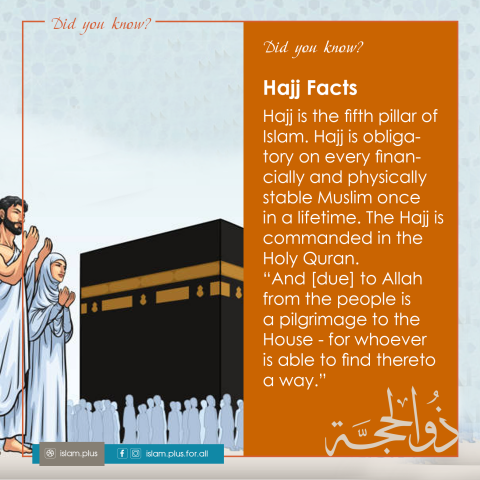Sheikh Ahmad Kutty
The world today faces a nearly unprecedented situation, with widespread fear in the face of the novel coronavirus which first appeared in China and has since spread to other countries.
The World Health Organization has declared a global health emergency. As Muslims, it is our duty to learn how we can respond to this crisis from a genuine Islamic perspective.
Islam and Health
Islam is a religion that celebrates health: of body, mind and soul. The Prophet (peace and blessings be upon him) taught us to pray to Allah to bless us with health and grace; and also said that whoever is blessed with health and grace possesses the best things ever.
Islam teaches us that our bodies are a trust; it is our duty to preserve them. The Islamic way of life stresses good hygiene & taking care of our bodies, minds and souls by developing good habits.
The Quran tells us that in so far as Allah has forbidden certain things, He has done so because they are harmful for us and/or our community.
Allah sent His messenger to permit things that are pure and wholesome, and prohibit things that are impure and unwholesome.
By staying away from that which is forbidden, we help protect ourselves from diseases and don’t get caught up in activities that are harmful to society and the environment.
In addition to the above, excellent Islamic teachings related to purification, including washing nether regions after answering the call of nature, regular major and minor ablutions, washing hands, cleansing the mouth, teeth and nostrils, are all part of the Prophetic Sunnah. Adhering to these teachings can protect us from bacterial infections.
Furthermore, the Prophet also stressed prevention and seeking beneficial treatment through medicine and spiritual healing.
Sunnah Tips
Here are some tips from the Sunnah to help us face the threat of the novel coronavirus and other contagious diseases – tips that can help us respond to such tests in a genuinely Islamic way.
- First of all is prevention
Islam stresses leading a life of balance and moderation – focusing on daily habits to enhance physical, mental and spiritual fitness.
Besides the rules of hygiene mentioned earlier, prevention includes ridding our body, clothes and surroundings off all sources of filth and pollution.
The Prophet always commanded keeping water sources and air free from pollution. Once a delegation that embraced Islam asked him about a summer resort they frequent, saying that they fall ill when they go there. The Prophet advised them to stay away from that place.
While commenting on this story, some scholars stated that he said so because the environment there had been polluted and was not conducive to human health.
-
Quarantine
Quarantine or isolating those infected with contagious diseases is another important Prophetic Sunnah. The Prophet said,
“Those with contagious diseases should be kept away from those who are healthy.” (Reported by Abu Dawud and others.)
The above rule applies to those who are suffering from diseases which may spread through physical contact, and even those whose symptoms may be disruptive or offensive to others.
People infected with viruses, or with flu-like symptoms, should stay at home instead of attending congregational prayers or social gatherings.
- Medicine and Treatment
Equally important is seeking beneficial methods of treatment. There is a misconception amongst many Muslims that the Prophet has prescribed spiritual treatment for most (or even all!) diseases.
This is false. On the contrary, the Prophet taught us to seek treatment from physicians. Aisha, his beloved wife, tells us that the Prophet would consult physicians who visited him and she would retain the prescriptions she heard them prescribing.
Once while visiting Sa’d b. Abi Waqqas who was sick, the Prophet advised him to consult Al-Harith b. Kildah, the famous physician of Arabia. Sa`ad did so and was cured after taking the medicine prescribed by Al-Harith. (Reported by Abu Dawud)
The Prophet said,
“When Allah sends down diseases, He also sends down cures for them.” (Reported by Bukhari).
He also said,
“Seek treatment for Allah has sent down a cure for every illness save one: old age.” (Reported by Ibn Abd al-Barr and others)
Seeking treatment from experts is imperative, rather than relying on quacks or charlatans disguised as spiritual healers. By saying this, I am not in any way implying that we should not use genuine spiritual methods of healing prescribed by the Prophet. Those methods should be followed by everyone, but are not meant to replace professional treatment by trained physicians.
No Excuse for Racism
One of the sad results of this pandemic is racism and xenophobia targeting a specific group. There is no room for this in Islam. A Muslim must believe in the common humanity of all people. Sa’di al-Shirazi, the Sufi poet, put it beautifully:
The children of Adam are limbs of a whole
Having been created of one essence.
When the calamity of time afflicts one limb
The other limbs cannot remain at rest.
If you have no sympathy for the troubles of others
You are not worthy to be called by the name of “man”.
Information verification
Social media is rife with misinformation and fake news. The Quran orders us to verify the accuracy of information we receive before believing it, acting on it, or passing it on to others.
Ultimate Source of Strength
Finally, we ought to seek strength in the basic tenet of our faith that Allah is the Sovereign Lord, who has created and decrees all things in the universe – not even a single leaf falls without His will.
He has decreed good and bad, and He tests us through His blessings as well as through trials, calamities and tragedies. By believing in the divine decree, we develop peace of mind and equanimity in all states.
Let the words of the Prophet be a source of strength for us at all times:
“A believer is indeed a most wondrous person: there is good for him in all his affairs. ِAnd this is a gift unique to the believer. When faced with a joyful event he is grateful to Allah and hence it is good for him; if, on the other hand, an adversity befalls him, he is patient, which again, works out for his good. ” (Reported by Muslim and others)
This should not however, prevent us from learning lessons from disasters and tragedies; they should to compel us to examine our behaviour and see how we may have contributed to them.
For example, scientists have been warning us for many years about global warming as a result of our relentless assault on the environment. This requires us to refrain from activities which may contribute to environmental degradation, leading to even more natural disasters.
Each one of us must take whatever little steps we can to reverse the situation. Together, we can make a difference in making the world a better place for all to live.
Source: About Islam


 Quran
Quran







Add new comment